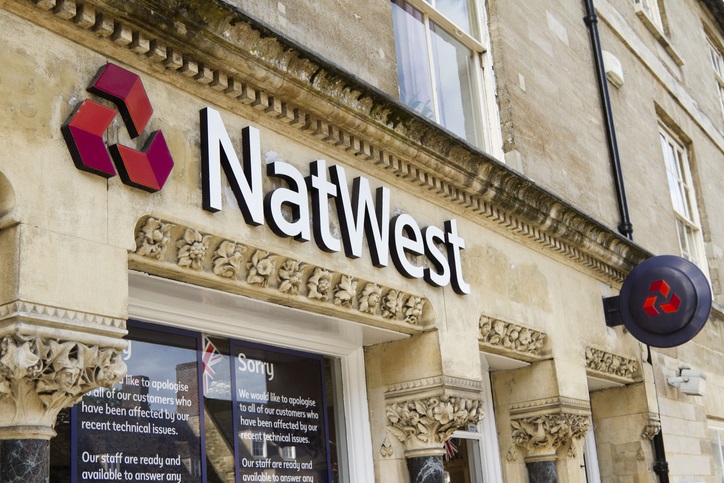Profitable NatWest handing more cash back to shareholders
30th July 2021 08:26
by Richard Hunter from interactive investor
Back to financial health after the financial crisis, NatWest is profitable and paying a dividend.

As with its peers, NatWest Group (LSE:NWG) is reaping the reward of a stabilising environment, with the further release of impairments providing a turbocharge to profits.
The second-quarter release takes the half-yearly total to £707 million, as compared to a charge of £2.9 billion a year previous. This reflects in an operating pre-tax profit of £2.5 billion, as opposed to a previous loss of £770 million.
Perhaps the most notable feature of the group at the moment is its financial health, where NatWest is faced with something of an embarrassment of riches. The ill-fated bravado leading up to the Great Financial Crisis is not just a distant memory but is also diametrically opposed to the conservative banking approach of today.
- Here's why Lloyds Bank is confident after these results
- Barclays shares rally after it kicks off bank results season
- Has the tide turned for the big UK bank stocks?
- Subscribe to the ii YouTube channel and catch all our latest interviews and video content
A capital cushion of 18.2%, a Liquidity Cover Ratio of 164% and access to a pool of liquidity amounting to £277 billion beg the question of the destination of the excess capital. A proposed dividend, which implies a yield of around 1.5%, could be supplemented by special dividends in the not too distant future, with a share buyback programme of up to £750 million also being announced. The bank is also likely to continue to target further purchases to trim the government stake, whose overall aim is to reduce the current level of 55% to around 40% over the next year.
Add together the interim dividend of 3p per share, share buy-back of up to £750 million and increased minimum annual distribution to shareholders of £1 billion for the next three years, total distributions will be at least £2.9 billion in 2021.
The other key metrics are mixed, with a vastly improved Return on Tangible Equity figure of 11.7% being offset by a cost/income ratio which has ticked higher to 65.7%, and a Net Interest Margin number which remains under pressure at just 1.61%.
Elsewhere, income has also fallen by 8.9% overall, with a notable decline of 60% coming from NatWest Markets, against strong comparatives from last year and with a weaker performance from Fixed Income in the current period. Customer deposits, a less profitable operation for the bank, have also risen by a significant 8.2%, or £35.5 billion, as consumers look to generally pay down debt and set money aside given the financial trauma of the pandemic. This has also impacted loan and credit card growth, which have also reduced.
More positively, there was another strong showing from the mortgages business given the tailwinds which the housing sector is currently seeing. In addition, the continued drive towards automation and digitalisation will increasingly reduce the cost lines of the group in terms of staff numbers, branches and the ability to roll out new services more cheaply.
- Top 20 most-bought UK shares in Q2 2021
- Six US bank stocks: buy, hold, or sell?
- Take control of your retirement planning with our award-winning, low-cost Self-Invested Personal Pension (SIPP)
Overall, the numbers are generally ahead of expectations and represent a further step towards a more stable and conservative approach.
The successes achieved so far have been reflected in a share price which has risen by 84% over the last year, as compared to a gain of 18% for the wider FTSE100 index, although the price still remains 11% down from the levels of two years ago. Nonetheless, the bank’s strength and standing continues to evolve, and the market consensus of the shares has also recently improved, now coming in at a 'buy'.
These articles are provided for information purposes only. Occasionally, an opinion about whether to buy or sell a specific investment may be provided by third parties. The content is not intended to be a personal recommendation to buy or sell any financial instrument or product, or to adopt any investment strategy as it is not provided based on an assessment of your investing knowledge and experience, your financial situation or your investment objectives. The value of your investments, and the income derived from them, may go down as well as up. You may not get back all the money that you invest. The investments referred to in this article may not be suitable for all investors, and if in doubt, an investor should seek advice from a qualified investment adviser.
Full performance can be found on the company or index summary page on the interactive investor website. Simply click on the company's or index name highlighted in the article.